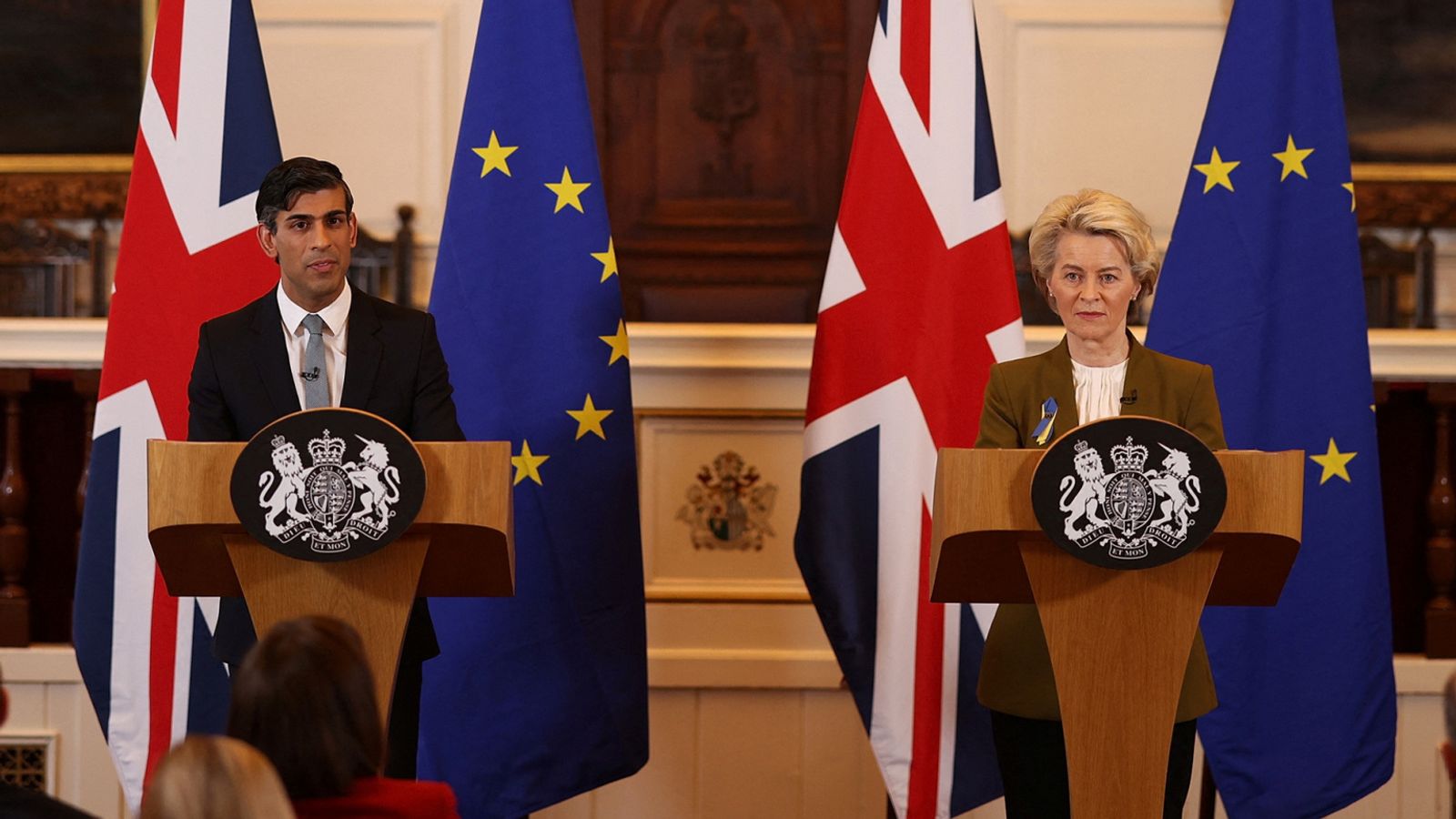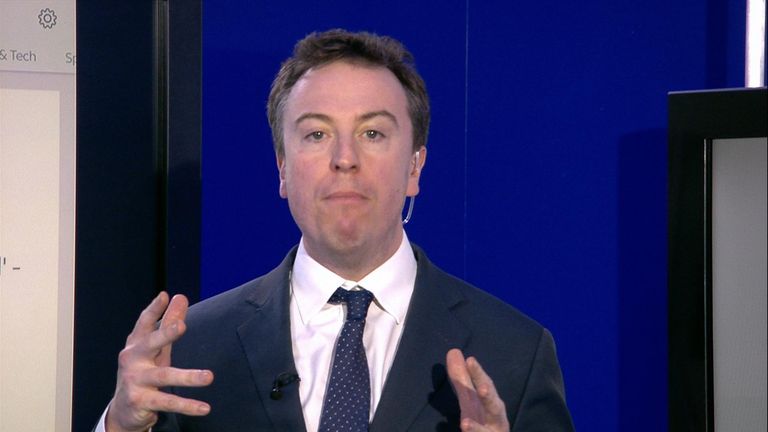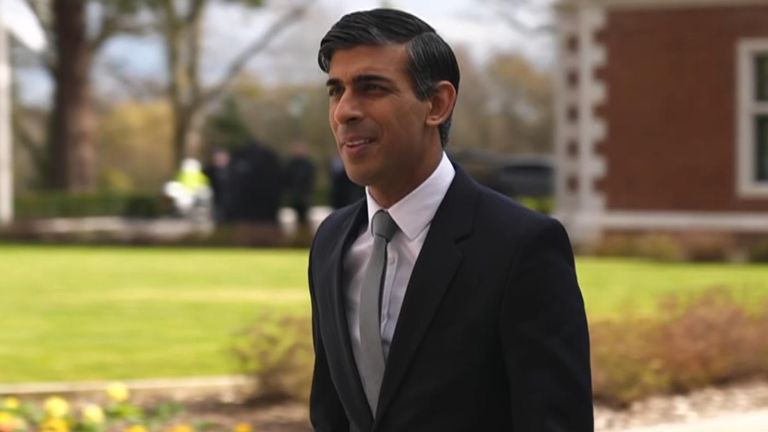Prime Minister Rishi Sunak has outlined details of the “new Windsor framework” agreed with the European Union to overcome trade barriers in Northern Ireland following Brexit.
The prime minister said the agreement was a “decisive breakthrough” that “delivers smooth-flowing trade within the whole of the United Kingdom, protects Northern Ireland’s place in our union and safeguards sovereignty for the people of Northern Ireland”.
The new deal includes:
- Green lane and red lane trade routes – where goods staying in the UK will use a green lane to avoid customs bureaucracy, while goods moving to the EU will use a red lane
- A “landmark” settlement on medicines. From now on, drugs approved for use by the UK’s medicines regulator will be automatically available in every pharmacy and hospital in Northern Ireland
- A new “Stormont brake” – To safeguard sovereignty in Northern Ireland – if the brake is pulled, the UK government will have a veto.
For weeks, there has been speculation over whether a new deal could be thrashed out three years after Brexit took place as Rishi Sunak entered talks with the EU.
But terms of the deal were revealed at a news conference following talks between Mr Sunak and European Commission President Ursula von der Leyen in Windsor this lunchtime.
Follow live updates on new post-Brexit deal
Mr Sunak put the deal – the biggest move of his premiership – to his cabinet this afternoon during a virtual meeting but a vote by MPs in the Commons is not expected until possibly later this week.
Following speculation there may not be a vote on the deal by MPs, Mr Sunak said parliament will have a vote “at the appropriate time”.
Asked if they were happy with the deal on leaving Number 10 just before 3pm, Home Secretary Suella Braverman smiled and Deputy Prime Minister Dominic Raab gave a thumbs up.
The prime minister held a joint news conference with Ms von der Leyen at 3.30pm GMT, where they revealed the details of the agreement.
Mr Sunak will now seek the backing of unionists and Tory Brexiteers.
Northern Ireland’s Democratic Unionist Party (DUP) leader Sir Jeffrey Donaldson said: “We’ll take our time to consider the detail and measure a deal against our seven tests.”
Read more:
What is the Northern Ireland Protocol?
What are the DUP’s seven tests?
The deal follows frustrations around the Northern Ireland Protocol, which aimed to prevent creating a hard border on the island of Ireland – but effectively placed a border in the Irish Sea.
This was something former prime minister Boris Johnson promised would not happen when he signed off on the original deal with the EU.
Some businesses have ceased trading due to the extra cost and bureaucracy created by goods coming into Northern Ireland from the rest of the UK having to be checked over concerns they could end up going into the EU over the border in Ireland.
Mr Johnson introduced the Northern Ireland Protocol Bill to override that part of the Brexit deal but this caused tension with the EU, who said the move risked breaching an international treaty. The bill’s passage through parliament was paused by Mr Sunak.
But Mr Sunak has now agreed a new deal with the EU, with European Commission President Ursula von der Leyen heading over to London on Monday morning to sign off on the final parts of the agreement.
She will then meet King Charles for tea at Windsor Castle.
Later today, Mr Sunak will make a statement on the deal to MPs in the House of Commons but a vote is not expected in the coming days.
Despite the details of the deal being closely guarded, Mr Sunak has faced opposition from Tory Brexiteers and the DUP, who has refused to form a government at Stormont for the past year over the protocol.
The PM will still need the DUP’s support to see the deal through but their support would be key to convincing those Conservatives to also back it.
Leading Brexit supporter MP Steve Baker, the Northern Ireland Office minister who had been on resignation watch, gave Mr Sunak his support earlier on Monday.
Earlier in the day, Brexiteer Jacob Rees-Mogg warned Mr Sunak of a possible Tory revolt if the DUP does not support the deal.
Labour has repeatedly said they will support a deal.


